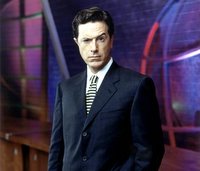I'd say the unthinkable has happened - except as D-Force reminded me, I had actually thought a Trump win had been likely since the summer. I wanted to take a few days to let the election results sink in and be able to reflect with some distance.
3.
Less likely (though not least likely - I won't even present my unlikely scenarios - some of which are quite hopeful and absurdly optimistic), but still a distinct possibility (maybe for example as likely as a Donald Trump presidency!) is that Something Happens. Of course unforeseen things will occur in the course of the next four years. Most of the way that I select a presidential candidate is based on how I think they will deal with the unforeseen. That said, what I mean with #3 is that instead of Trump getting into a room with professional advisors, he acts out. If North Korea launches an attack or China stretches further into the South China Sea - perhaps the Russia/Syria/Iran/ISIS hotbed becomes hotter - a question of a very sudden militaristic response that isn't thought out and can't be taken back.
The Result: Goddess knows, but if anything outrageous were to occur, it may well spark mass protest, from people across the political spectrum. If we have a person with control of the most powerful military in the history of the world who decides to wield it, and in particular who wields it toward un-humanistic outcomes, it will be scary - and a frightening opportunity to unify a seemingly un-unifiable populace.
Now that we find ourselves here, I think it's useful to look
forward, rather than back (you know, like back to when I and many others were
rationally trying to explain why Bernie had a much better chance of beating
Donald Trump in a general election because it was such an overwhelmingly
Change Election...). Looking forward, I see the three most likely paths
that a Trump presidency holds in store for us, and I rank these in the order
that I think them likeliest to less likely (note not least likely - I
won't even present that here...):
1.
Trump assumes power in January, and by the time we get to Inauguration Day, we find that he has oddly stopped talking about "The Wall" and "Muslim Bans" and he is instead focused on "Border Security" and "Safe Zones for Refugees" (safely located in their own countries or regions, naturally). Trump works closely with the Republicans to gut our national safety net and build a non-progressive tax system that waits for financial relief to "trickle down" to unprotected workers who have lost the right to unionize or earn a fair, living wage. In other words, he behaves as any normal Republican would have in office - he's Mitt Romney, only richer and more orange.
Trump assumes power in January, and by the time we get to Inauguration Day, we find that he has oddly stopped talking about "The Wall" and "Muslim Bans" and he is instead focused on "Border Security" and "Safe Zones for Refugees" (safely located in their own countries or regions, naturally). Trump works closely with the Republicans to gut our national safety net and build a non-progressive tax system that waits for financial relief to "trickle down" to unprotected workers who have lost the right to unionize or earn a fair, living wage. In other words, he behaves as any normal Republican would have in office - he's Mitt Romney, only richer and more orange.
The Result:
The Establishment (K-Street, Republican & Democratic Parties, most Major
Media outlets, Wall Street, Middle Management, Delaware and Connecticut) thinks
they've won, and scary 2016 is behind us; Righteous Anger Comedy (John Oliver,
Samantha Bee, The Daily Show, etc.) have a field day - it's like the heady
days of mocking the George W Bush years on steroids on PCP; Flyover Country
Working Class Rage (this has been mis-diagnosed pre- and post-election as
"the last stand of the old white guy" or racism, misogyny, xenophobia
- all of that was certainly a part of the Trump Coalition, but there are two
major groups who overwhelmingly elected Trump: Working Class Labor and White Middle
Management.
This is not a natural partnership and can't stand. If Trump proceeds on the most likely course (#1), as I see it, The Tea Party and Working Class Crossover vote (progressives bemoaning the outcome of the election as depressed voter turnout and voter suppression - both valid, but not the whole story - have to get comfortable with the fact that the Democratic Party also lost voters this cycle) will remain furious. Trump's more extreme policies (both the racist and xenophobic ones and the more tenable radical positions on trade and mass military interventionism) would be tempered and mostly forgotten in this scenario. In 2020, the Outrage for Radical Change electorate will still be out there. It's key to remember this voting bloc is neither inherently conservative or liberal - if they calcify around a specific candidate, it need not be a Republican or Democrat (or left or right Third Party).
2.
The other likely (tho slightly less so, methinks) outcome of Trump's assumption of power in January is that he actually tries to do what he has said he would do. The uncertain part here would be the order of things. If Trump starts, as he seems to have hinted, with a Public Works program (Massive Infrastructure Investment), he would likely get cooperation from the Democrats. That would be wise, as I'm not sure whether Democrats would go along with any proposed measures of Trump's after he starts down any racist or xenophobic policy paths. Mass protests would follow. It's difficult to say how long these first several evenings of protests will progress. They are important, and need to be a part of the conversation, but if Trump actually starts enacting is catastrophic policies, the Foolhardy Wall, the Unconstitutional Muslim Ban, Alarmist Foreign Policy (possibly including either Russia-loving or going to proxy war with Russia in Syria), Protectionist Economics, and Extreme Blue Collar Job Creation (this is accomplished either through the Massive Infrastructure Investment mentioned above or via Soviet-Style Factory Takeover by the State {or better by local Municipalities}).
The Result: What's strange is that the complete package of Trump's proposals are all over the map. The question is whether we can parse the policy from the president. Can the protests turn toward specific policies (Don't take away our Obama-Care! Enact Progressive Tax Reform!), and not just be against the figurehead. I've already heard anecdotal stories of people helping strangers out against bigoted, misogynistic, xenophobic attacks on an individual basis. The question is whether protest can be used surgically to disagree with the deplorable policies, while welcoming the Public Works and creating trade policies that don't solely support the Financial Class.2.
The other likely (tho slightly less so, methinks) outcome of Trump's assumption of power in January is that he actually tries to do what he has said he would do. The uncertain part here would be the order of things. If Trump starts, as he seems to have hinted, with a Public Works program (Massive Infrastructure Investment), he would likely get cooperation from the Democrats. That would be wise, as I'm not sure whether Democrats would go along with any proposed measures of Trump's after he starts down any racist or xenophobic policy paths. Mass protests would follow. It's difficult to say how long these first several evenings of protests will progress. They are important, and need to be a part of the conversation, but if Trump actually starts enacting is catastrophic policies, the Foolhardy Wall, the Unconstitutional Muslim Ban, Alarmist Foreign Policy (possibly including either Russia-loving or going to proxy war with Russia in Syria), Protectionist Economics, and Extreme Blue Collar Job Creation (this is accomplished either through the Massive Infrastructure Investment mentioned above or via Soviet-Style Factory Takeover by the State {or better by local Municipalities}).
3.
Less likely (though not least likely - I won't even present my unlikely scenarios - some of which are quite hopeful and absurdly optimistic), but still a distinct possibility (maybe for example as likely as a Donald Trump presidency!) is that Something Happens. Of course unforeseen things will occur in the course of the next four years. Most of the way that I select a presidential candidate is based on how I think they will deal with the unforeseen. That said, what I mean with #3 is that instead of Trump getting into a room with professional advisors, he acts out. If North Korea launches an attack or China stretches further into the South China Sea - perhaps the Russia/Syria/Iran/ISIS hotbed becomes hotter - a question of a very sudden militaristic response that isn't thought out and can't be taken back.
The Result: Goddess knows, but if anything outrageous were to occur, it may well spark mass protest, from people across the political spectrum. If we have a person with control of the most powerful military in the history of the world who decides to wield it, and in particular who wields it toward un-humanistic outcomes, it will be scary - and a frightening opportunity to unify a seemingly un-unifiable populace.



